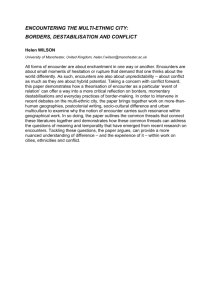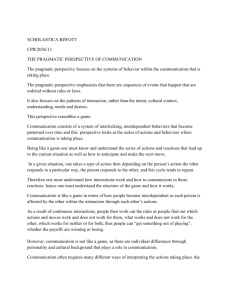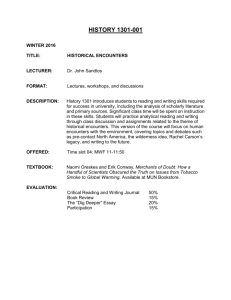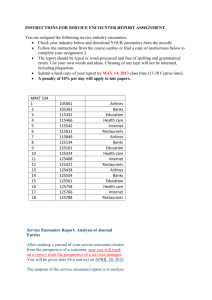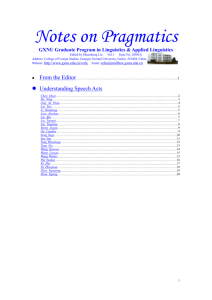The Manifestations of We-Attitudes in Social Encounters
advertisement
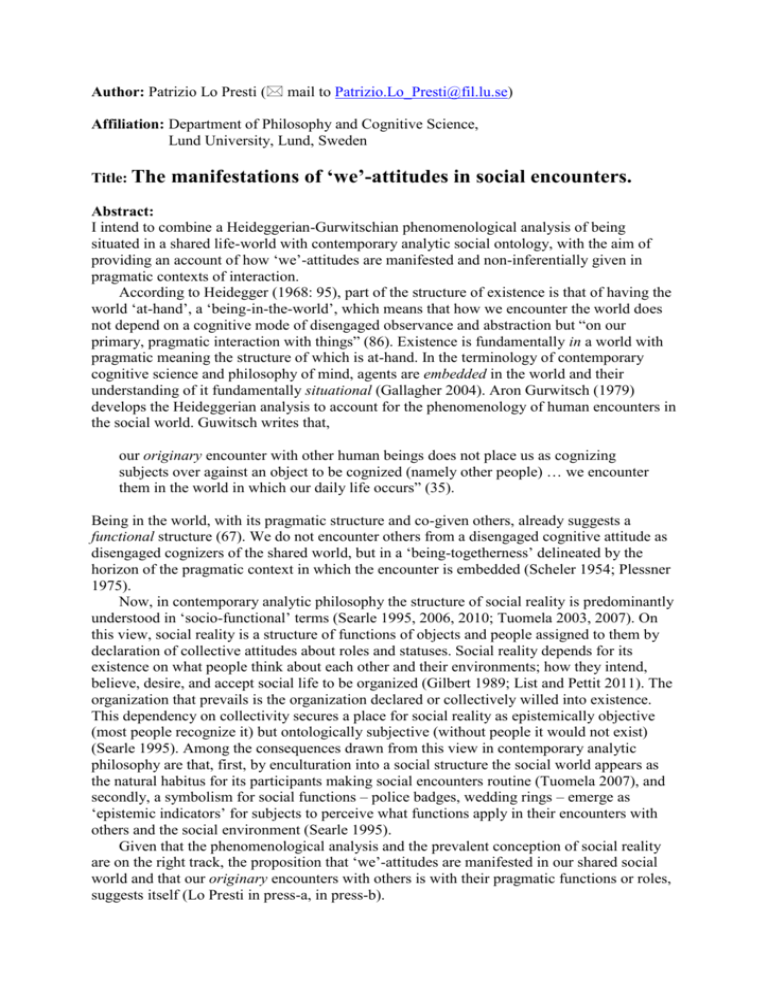
Author: Patrizio Lo Presti ( mail to Patrizio.Lo_Presti@fil.lu.se) Affiliation: Department of Philosophy and Cognitive Science, Lund University, Lund, Sweden Title: The manifestations of ‘we’-attitudes in social encounters. Abstract: I intend to combine a Heideggerian-Gurwitschian phenomenological analysis of being situated in a shared life-world with contemporary analytic social ontology, with the aim of providing an account of how ‘we’-attitudes are manifested and non-inferentially given in pragmatic contexts of interaction. According to Heidegger (1968: 95), part of the structure of existence is that of having the world ‘at-hand’, a ‘being-in-the-world’, which means that how we encounter the world does not depend on a cognitive mode of disengaged observance and abstraction but “on our primary, pragmatic interaction with things” (86). Existence is fundamentally in a world with pragmatic meaning the structure of which is at-hand. In the terminology of contemporary cognitive science and philosophy of mind, agents are embedded in the world and their understanding of it fundamentally situational (Gallagher 2004). Aron Gurwitsch (1979) develops the Heideggerian analysis to account for the phenomenology of human encounters in the social world. Guwitsch writes that, our originary encounter with other human beings does not place us as cognizing subjects over against an object to be cognized (namely other people) … we encounter them in the world in which our daily life occurs” (35). Being in the world, with its pragmatic structure and co-given others, already suggests a functional structure (67). We do not encounter others from a disengaged cognitive attitude as disengaged cognizers of the shared world, but in a ‘being-togetherness’ delineated by the horizon of the pragmatic context in which the encounter is embedded (Scheler 1954; Plessner 1975). Now, in contemporary analytic philosophy the structure of social reality is predominantly understood in ‘socio-functional’ terms (Searle 1995, 2006, 2010; Tuomela 2003, 2007). On this view, social reality is a structure of functions of objects and people assigned to them by declaration of collective attitudes about roles and statuses. Social reality depends for its existence on what people think about each other and their environments; how they intend, believe, desire, and accept social life to be organized (Gilbert 1989; List and Pettit 2011). The organization that prevails is the organization declared or collectively willed into existence. This dependency on collectivity secures a place for social reality as epistemically objective (most people recognize it) but ontologically subjective (without people it would not exist) (Searle 1995). Among the consequences drawn from this view in contemporary analytic philosophy are that, first, by enculturation into a social structure the social world appears as the natural habitus for its participants making social encounters routine (Tuomela 2007), and secondly, a symbolism for social functions – police badges, wedding rings – emerge as ‘epistemic indicators’ for subjects to perceive what functions apply in their encounters with others and the social environment (Searle 1995). Given that the phenomenological analysis and the prevalent conception of social reality are on the right track, the proposition that ‘we’-attitudes are manifested in our shared social world and that our originary encounters with others is with their pragmatic functions or roles, suggests itself (Lo Presti in press-a, in press-b).
